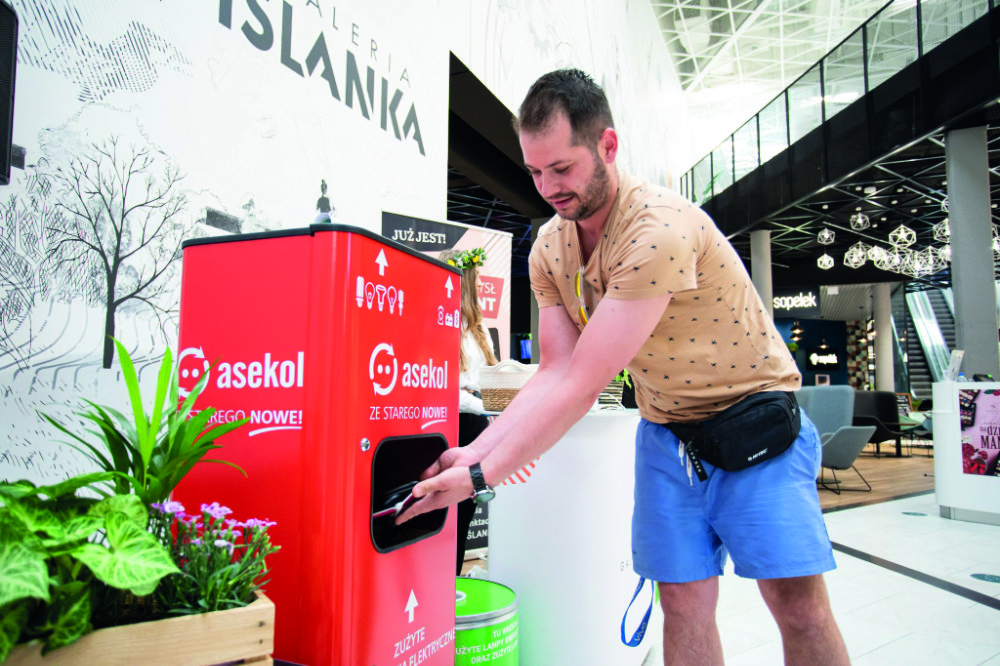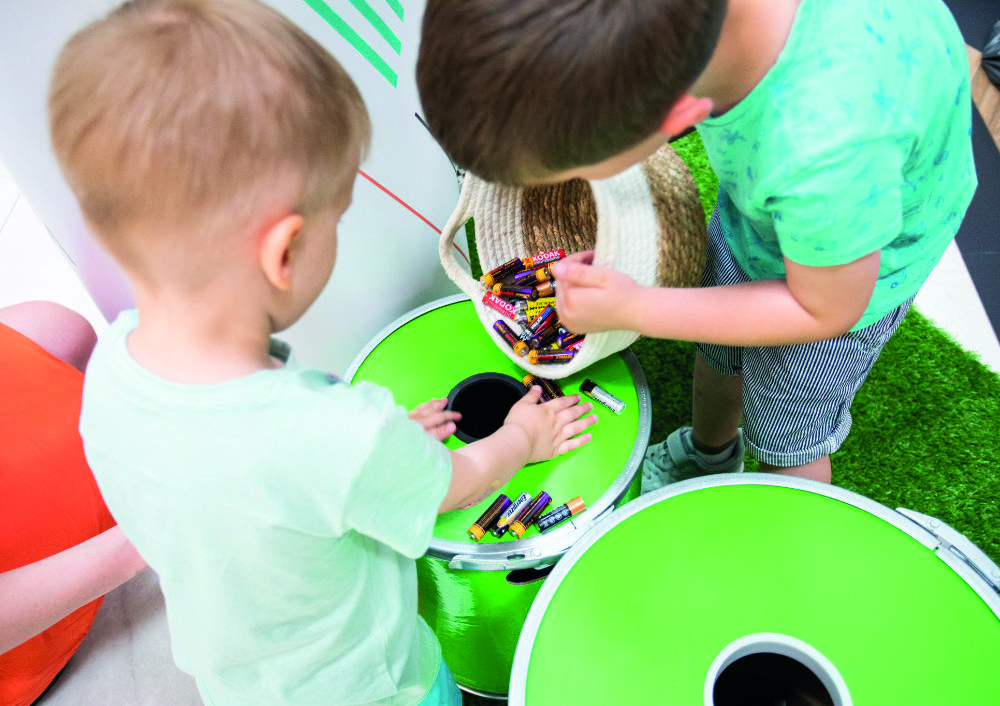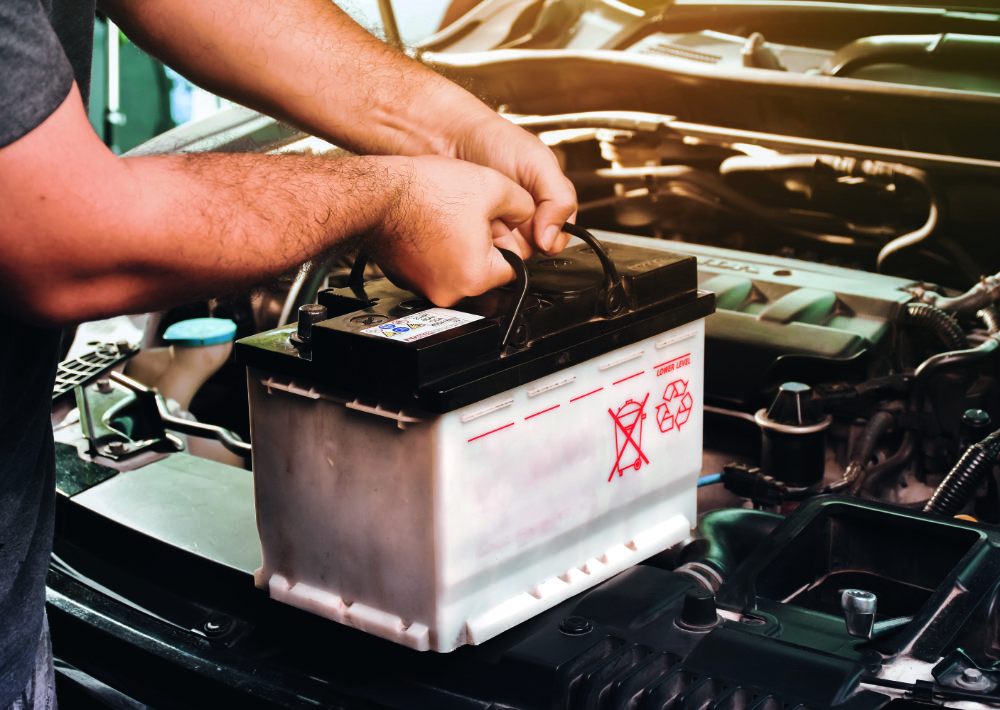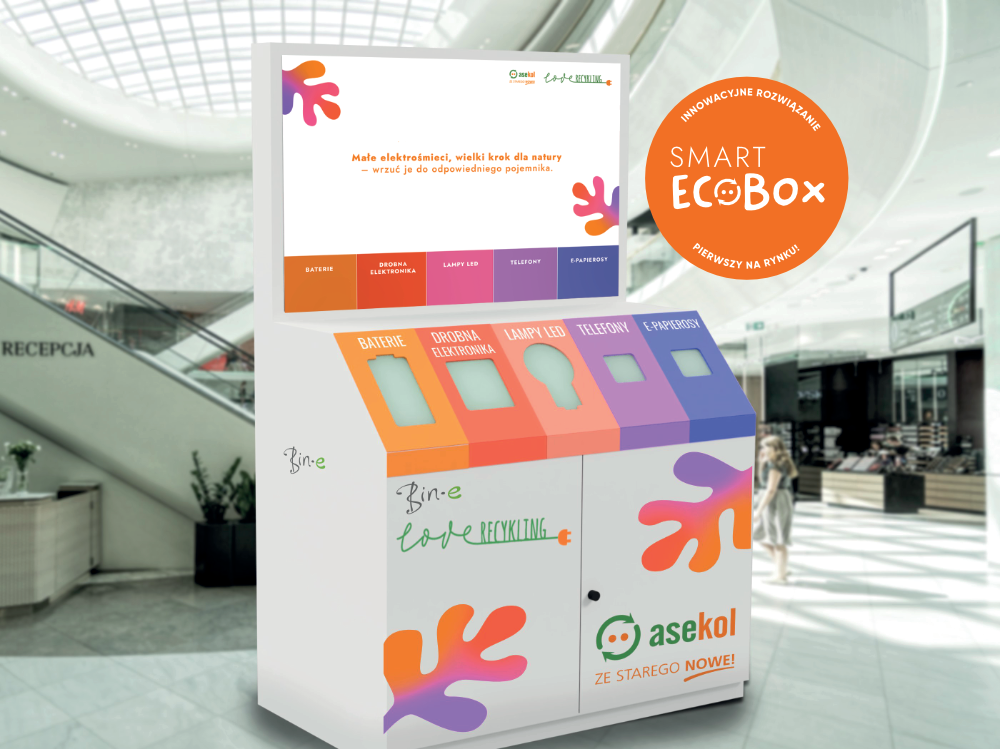
BATTERIES AND ACCUMULATOR
At ASEKOL, we care about environmental protection and encourage
proper handling of used batteries and accumulators,
which are an integral part of our everyday life.
New battery regulation
NEW BATTERY REGULATION
Major changes in the field of introducing batteries and accumulators, as well as their collection and recycling, are expected in the European Union countries in the near future. The ongoing work since 2020 has accelerated and the regulation of the European Parliament and the European Council on batteries and waste batteries, repealing Directive 2006/66/EC, and amending Regulation (EU) 2019/1020 is expected to be published this year.
The regulation introduces new categories of batteries and accumulators: portable, batteries for light means of transport (LMT), industrial, batteries from electric vehicles (EV), batteries used for starting or auxiliary purposes in vehicles (SMI).
– A portable battery is a sealed battery weighing up to 5 kg, not intended for industrial use, and not an EV or SMI battery.
– Battery for light means of transport or LMT battery means any battery that is sealed and weighs less than 25 kg. It is designed to supply electrical energy to the propulsion of wheeled vehicles, which can be powered solely by an electric motor or by combining engine power and human force. Examples include batteries from electric bicycles, scooters, or electric scooters.
– Industrial battery means any battery designed specifically for industrial applications or any other battery weighing over 5 kg that is not an LMT, EV, or SMI battery.
– Electric vehicle battery or EV battery means any battery specially designed to supply electrical energy for the propulsion of hybrid or electric vehicles.
– Starting-lighting-ignition battery or SLI battery means any battery intended to supply electrical energy to the starter, lighting or ignition, which can also be used for auxiliary or reserve purposes in vehicles, other means of transport or machinery.
New collection targets will be set for those introducing portable batteries and batteries for light means of transport. For portable batteries, the collection targets will be as follows: 45% by December 31, 2023, 63% by December 31, 2027, and 73% by December 31, 2030. For batteries for light means of transport (LMT), the designated collection targets are 51% by December 31, 2028, and 61% by December 31, 2031. Specific collection targets have not been designated for industrial, EV, and SMI batteries, but it is specified that those introducing them should ensure the collection of 100% of the batteries produced. The regulation also outlines economic obligations regarding due diligence in the supply chain and requirements for green public procurement when purchasing batteries or products containing batteries. The regulations anticipate the introduction of a Battery Passport, allowing for better planning and business decision-making for entities involved in the second life of batteries and their recycling. An electronic system is planned to facilitate the exchange of information on the carbon footprint, battery composition, including hazardous substances, intensity of use, and consumption. The system is intended to enable tracking and tracing of batteries.
Collaboration regarding introduced batteries and accumulators
Collaboration regarding introduced batteries and accumulators. Legal obligations transferred to an intermediary entity under the agreement.
This topic is important, especially in the context of the new battery regulation published on July 28, 2023, in the Official Journal of the European Union (Regulation (EU) 2023/1542 of the European Parliament and of the Council of July 12, 2023, on batteries and waste batteries, amending Directive 2008/98/EC and Regulation (EU) 2019/1020, and repealing Directive 2006/66/EC). The regulation will profoundly change the battery market and the obligations imposed on introducers. However, before the new regulations come into force, let’s discuss the currently applicable rules and the settlement process.
An introducer of batteries or accumulators is an entrepreneur implementing business activities related to introducing batteries or accumulators into circulation, including those mounted in equipment or vehicles, for the first time in the country. An introducer of batteries or accumulators also includes an entrepreneur who:
– imports batteries or accumulators or acquires them intra-Community for the purposes of business activities,
– imports batteries or accumulators or acquires them intra-Community for the purposes of business activities,
The provisions of the Battery and Accumulator Act apply to all types of batteries and accumulators produced and introduced into circulation, regardless of their shape, capacity, mass, material composition, manner of use and whether they are an accessory, component of a device or an addition to other products.
In the current regulations, three types of batteries are distinguished: portable, industrial and automotive. The new regulation introduces new categories of batteries: portable, batteries for light means of transport (LMT), industrial, batteries from electric vehicles (EV) and batteries used for starting or auxiliary purposes in vehicles (SMI).
Key obligations of the battery introducer:
– Obtaining entry in the Central Register of Business Activity (BDO) in Section V, Table 1.
– Keeping records of the mass of introduced batteries and accumulators.
– Ensuring collection targets for portable batteries (45%).
– Conducting public educational campaigns.
– Contract with a collecting company and a processing plant.
– Paying an annual fee for maintaining entry in the BDO.
– Placing the registration number on documents.
– Submitting annual reports.
– Paying the product fee.
The above obligations can be fulfilled by the entrepreneur introducing batteries independently or entrusted to an intermediary entity (including a recovery organization). However, the obligation to keep records of introduced batteries, placing the BDO number on invoices and other documents must be fulfilled independently.
COLLECTION TARGETS
The current collection target for portable batteries has been 45% since 2009, and based on the new regulation, it will increase in the coming years, reaching 73% in 2030. This is likely to result in increased costs for introducers, and from the system’s perspective, it will require the construction of more efficient battery collection and processing systems. ASEKOL PL is in the process of preparing pioneering solutions for battery collection and storage. In the coming weeks, we will be informing our customers and partners about this. Importantly, collection targets for other types of batteries will also be introduced. For LMT batteries, a 51% collection target has been set for 2028 and 61% for 2031.
INDEPENDENT IMPLEMENTATION OF COLLECTION TARGETS
The introducer can meet the required collection target for portable batteries independently. In such a situation, they are obliged to conclude a contract with collectors and facilities processing waste batteries or accumulators. Such a contract pertains to the collection, processing and recycling of waste batteries or accumulators, respectively. In the event of non-compliance with the obligation, a product fee of PLN 9/kg of obligation must be paid, along with an additional fee for public educational campaigns (PLN 0.03/kg). The introducer must also remember to submit a report on the introduced batteries and the fulfillment of the obligation or the calculation of the product fee and its payment to the appropriate Marshall Office’s bank account.
REALIZATION OF COLLECTION TARGETS WITH AN INTERMEDIARY (RECOVERY ORGANIZATION)
In such a case, the introducer enters into one contract. The intermediary, according to Article 28 of the Battery and Accumulator Act, is obliged to:
– ensure collection targets,
– conduct public educational campaigns,
– conclude contracts with collectors and processing and recycling plants,
– submit annual reports.
Additionally, the intermediary may take on obligations such as:
– registration or update in the BDO register,
– payment or at least reminding of the obligation to pay the annual fee for maintaining the entry in the BDO.
As can be seen from the aforementioned description, a convenient and safe form is to conclude a contract with an intermediary. However, it is advisable to choose stable entities with appropriate human and technical resources.
We highly recommend cooperation with ASEKOL PL. Feel free to contact us: [email protected], tel. 882 067 884.

DEDICATED CONTAINERS
One of our solutions includes special containers for batteries, allowing for convenient and safe collection of used batteries in public places, companies and institutions. Thanks to these containers, everyone can easily contribute to environmental protection by properly disposing of batteries.
AVAILABLE OPTIONS
RED-BOX
The container is used for collecting batteries, LED lamps, fluorescent tubes and light bulbs, as well as used electrical devices.
GREEN CONTAINER
The container is used for collecting batteries and LED lamps, fluorescent tubes and light bulbs.
Battery container: height 45 cm, diameter 35 cm.
Fluorescent tube container: height 50 cm, diameter 40 cm.
RED CONTAINERS
External containers for the collection of small and medium-sized electronic waste, including batteries.


ACCUMULATORS
Almost 95% of components from an old accumulator can be used to manufacture another, new unit. Recovered elements can be reused for the production of new batteries or accumulators, as well as in other industries – glass, chemical, textile or paper. The process of selling and disposing of used batteries in Poland is subject to special regulations. Each accumulator has the symbol of a crossed-out waste bin – it means that it should be disposed of selectively. To prepare an individual offer for you, please contact: [email protected]
MULTIFUNCTIONAL SMART ECOBOX
Your partner in sustainable recycling
Smart Ecobox is an intelligent device for selective collection of electronic waste, tailored to the customer’s needs, managed by the application.
Our proprietary project is equipped with five compartments for sorting five batches of small electronic waste: batteries, small electronics, LED lamps, mobile phones and e-cigarettes.
Awarded the Gold Medal of the MTP Group and the Consumer Award at the Poznań POLECO 2023 Fair.

PRACTICAL DESIGN
Smart Ecobox is a stylish and compact container that fits perfectly into office and service interiors.
ECO-FRIENDLY DESIGN
We give you the opportunity to actively participate in the recycling of electronics, reducing the negative impact on our planet.
USER-FRIENDLINESS
Our device is intuitive and easy to use. Asekol remotely monitors the fill level of the container and regularly empties it.
SAFETY
All e-waste is safely disposed of and recycled.
INNOVATION AND CONVENIENCE
ASEKOL Smart Ecobox is not just a container, it is also a step towards responsible waste management.
It is a solution that combines innovation and environmental care. With its help, everyone can actively contribute to protecting our planet.


